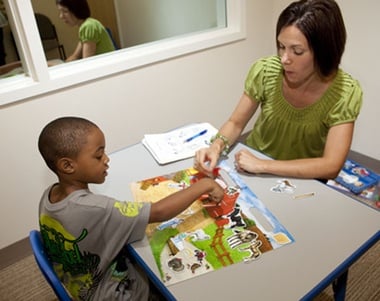1. Base Your Discussion On The Child And The Situation
Provide only enough information that answers the child’s questions about the death. Assure the child that the person is no longer in any pain, but sadly not returning. Assure the child that they are well-loved and will be taken care of. Discuss happier memories of the person and reassure the child that even though the person is gone they will never be forgotten.
2. Allow The Child To Grieve
Grieving is a natural process, and it is unnatural and cruel not to make allowances for grief. Provide appropriate outlets for grief, such as allowing them to go to the funeral, sharing memories of the deceased with others, and talking about the loved one. Remember there are no strict time lines for grieving. Talk with the child as he or she needs to be listened to.
3. Be Honest But Avoid Potentially Traumatizing Information
Answer a child’s questions honestly. Exclude every last detail of the death; these are details the child simply has no need of knowing. For example, if it was a sudden accident, there is simply no need to traumatize the child further with details about the accident. Always reassure the child that they are safe and protected and that while accidents do happen, the child does not need to worry.
4. Watch Out For Unusual Behavior After The Discussion
The child may exhibit unusual behavior after a death occurs. The child may think they can reunite with the loved one after a death and may consider or attempt suicide; seek professional help immediately in that case. The child may withdraw socially and no longer wish to play as he or she once did. Encourage play by engaging the child in activities he or she enjoys.
5. Be A Good Listener
Ask the child open-ended questions to encourage discussion and then simply listen. Allowing the child to air his or her grief is a good way on the path to grief recovery. The child may get “stuck” in a particular discussion, in which case it is good simply to continue listening until the child is fully prepared to move forward.
6. Avoid Lying About The Death
While it may seem easier to simply tell the child that the person has simply “gone away” as if on a vacation, the result is that the child will learn that you cannot be trusted in being truthful. Yes, in a sense, the person has “gone away,” but be sure to emphasize that the person cannot come back or that there are no possibilities of visitation.
7. Create A Ritual Of The Death
While it may see counterintuitive, a death ritual helps a child come to terms with the death. In the West, this normally includes families reuniting, a wake, and then the funeral. Prepare the child by letting them now that people are coming and some may be new faces. Tell them what happens in a wake and what to expect during the funeral.
8. Prepare To Answer Questions
Again, the key here is to be honest. Answer to the best of your knowledge; it is absolutely fine to tell the child that there is something you don’t know. Be aware of age appropriate answers and avoid providing too much detail. Featured photo credit: Flowers rest on headstone in cemetery via shutterstock.com


